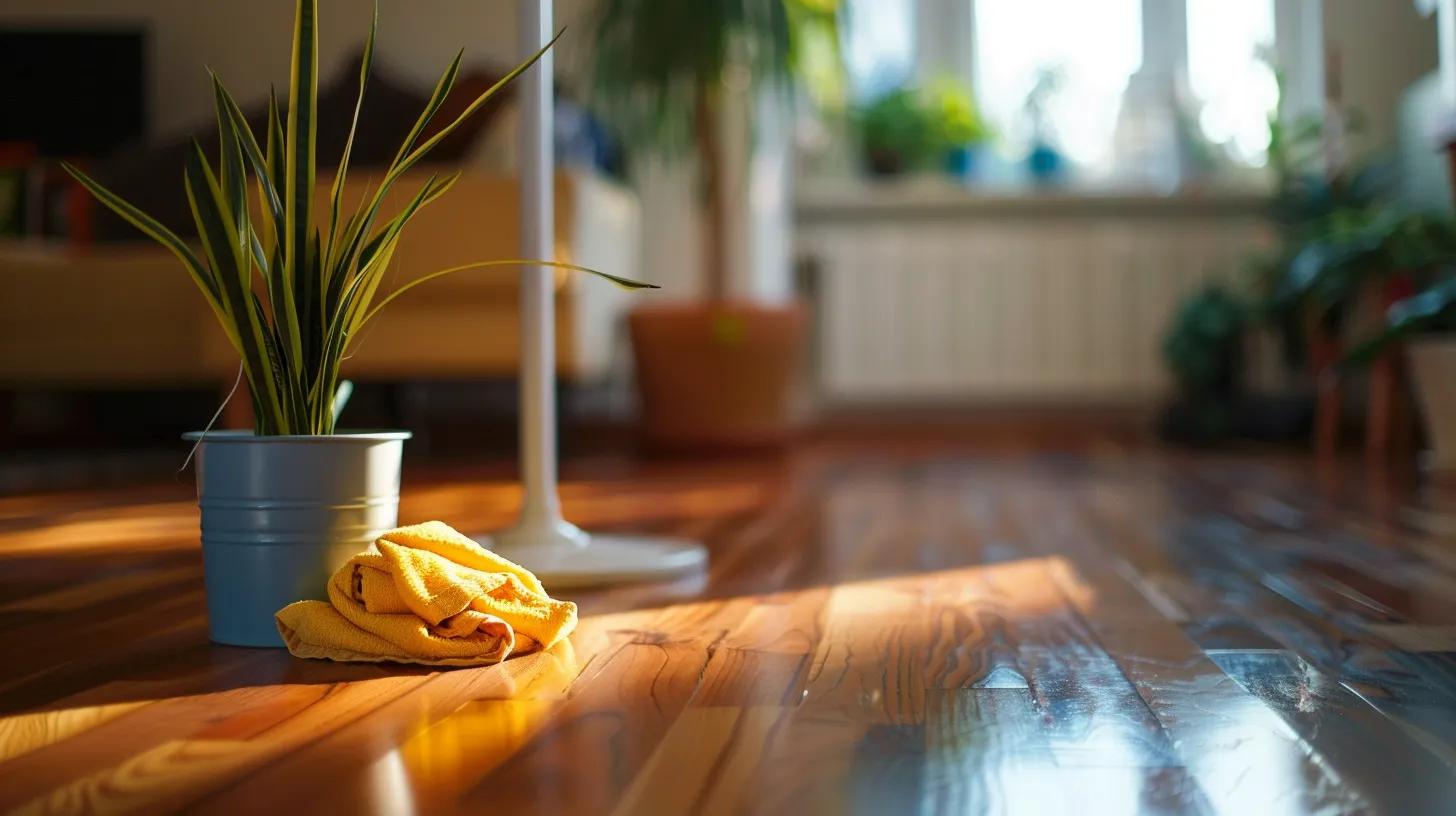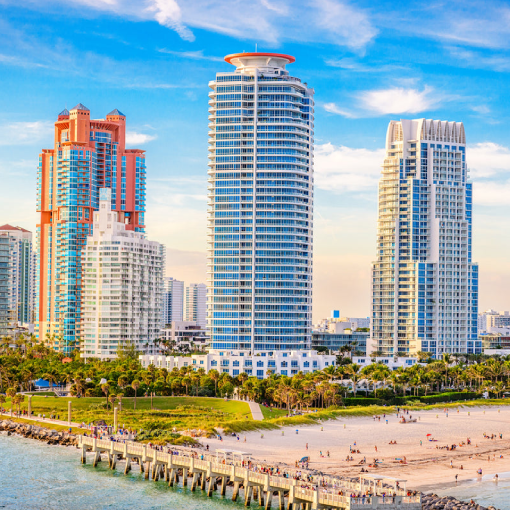Determine Ideal Cleaning Frequency for Your Airbnb Rental

In managing an Airbnb rental, maintaining a clean, inviting environment is essential for guest satisfaction, protecting the property, and simplifying operations. Establishing the ideal cleaning frequency can improve reviews, boost occupancy rates, and reduce host stress. Professional cleaning services, when scheduled correctly, ensure every guest experiences a pristine space that meets modern hygiene standards. This article explains why the right cleaning frequency is vital, the factors that influence it, industry benchmarks, and best practices for optimizing schedules. With proven strategies and data-backed insights, hosts can maximize guest satisfaction while managing costs efficiently.
Investing in a consistent cleaning schedule maintains high cleanliness standards that attract repeat bookings, prevents property damage by stopping grime and wear, and reduces the time spent coordinating between bookings—freeing up time for other aspects of the rental business.
Why Is Determining the Right Cleaning Frequency Crucial for Airbnb Hosts?
Determining the right cleaning frequency directly affects guest satisfaction, property maintenance, and operational efficiency. Regular cleaning improves guest experiences, drives positive reviews, and ensures a safe, hygienic environment—all critical for a successful Airbnb business.
How Does Cleaning Frequency Impact Guest Satisfaction and Reviews?
A flawlessly cleaned property makes a strong first impression and increases the likelihood of positive reviews. Consistent professional cleaning not only enhances the property’s visual appeal but also contributes to a healthier indoor environment. Properties with regular maintenance often see guest satisfaction scores that are 30–40% higher. In addition, a visible, well-documented cleaning schedule highlights trustworthiness and attention to detail, increasing search rankings and bookings.
What Role Does Professional Cleaning Play in Protecting Your Property?
Over time, dust, allergens, and grime accumulate, deteriorating fabrics, surfaces, and infrastructure. Routine professional cleaning minimizes these risks by using specialized solutions for carpets, countertops, and upholstery. This thorough sanitation not only prevents the spread of germs but also extends the life of furnishings. Regular carpet cleaning, for example, prevents dirt and allergens from becoming permanent stains or causing deterioration. Investing in professional house cleaning ultimately reduces repair costs and preserves the property’s appeal and safety.
How Can Proper Cleaning Scheduling Save Time and Reduce Host Stress?
Without a structured cleaning schedule, hosts may juggle multiple appointments and face last-minute rushes that disrupt operations. A well-planned schedule ensures every guest receives consistent service without constant oversight. By partnering with professional cleaning services that offer reliable scheduling software and flexible service plans, hosts can automate routine tasks. This efficient system minimizes manual coordination, handles peak periods and unexpected delays, and frees up valuable time for strategic planning and guest communication.
What Factors Should Influence How Often You Schedule Cleaning Services?
Hosts must consider several factors to determine the optimal cleaning schedule. These include booking volume, guest turnover, property size, and seasonal fluctuations. A careful analysis of these elements tailors cleaning efforts to each rental’s specific needs, ensuring thorough sanitation and efficient operations.
How Do Booking Volume and Guest Turnover Affect Cleaning Needs?
High booking volume and frequent guest turnover require more regular cleanings. Properties with daily bookings, particularly those with short stays, may need cleaning after every guest departure. In contrast, rentals with weekly bookings might follow a different cadence. High-turnover properties often see a 20–30% boost in guest satisfaction when makeup cleanings are scheduled immediately after check-out. Quick turnarounds prevent the build-up of dirt and ensure a consistent standard, which is a key driver for repeat bookings.
How Does Property Size and Type Change Cleaning Requirements?
Larger properties with multiple bedrooms, bathrooms, and communal areas generally require more extensive cleaning compared to single-room rentals. Different property types, such as entire homes versus shared spaces, present unique challenges. Entire homes might build up dust faster due to heavy foot traffic, while shared spaces in multi-unit buildings often require focused cleaning on common areas. Specific tasks like carpet cleaning or deep-cleaning kitchens and bathrooms might be scheduled less frequently but demand more intensity. Understanding these differences helps set a frequency that balances thorough cleaning with cost-effectiveness.
What Seasonal or Location-Based Considerations Affect Cleaning Frequency?
Seasonal changes and the property’s location also influence cleaning needs. In humid or coastal areas, where salt, sand, or moisture accelerate buildup, more frequent deep cleans become necessary. High-tourism seasons and shorter intervals between stays require efficient cleaning processes to keep homes presentable. Weather variations—such as rainy seasons leading to damp, mold-prone environments or dry seasons causing faster dust accumulation—should be factored into scheduling. Properties in vacation hotspots or regions with extreme weather conditions benefit from flexible, dynamic cleaning schedules that adjust based on current bookings and environmental factors.
How Often Do Airbnb Hosts Typically Schedule Professional Cleaning?
Industry benchmarks reveal that Airbnb hosts usually combine regular turnover cleaning with occasional deep cleans. Practices vary with rental type, seasonal occupancy, and guest expectations. A consistent cleaning schedule is essential to reinforce quality and streamline logistics.
What Is the Standard Cleaning Frequency for Short-Term Rentals?
For short-term rentals, cleaning typically occurs after every guest departure—ensuring the property is cleaned at least once per booking. Some hosts add extra touch-up cleanings during longer stays. In high-traffic markets, daily or even twice-daily cleaning during peak seasons may be necessary to keep common areas spotless. A standard turnaround cleaning focuses on key touchpoints like bathrooms, kitchens, and entryways immediately after check-out, with more comprehensive routines scheduled periodically (weekly or monthly) for areas that accumulate dirt slowly. This consistency boosts review scores, leading to higher booking rates and improved occupancy.
How Do Hosts Adjust Cleaning Frequency for High-Demand Periods?
During high-demand periods, such as peak travel seasons or major events, the interval between bookings shortens; cleaning frequency may increase by 25–50%. Hosts may employ strategies like same-day deep cleans or emergency touch-up services to maintain standards. Robust scheduling systems and close coordination with cleaning partners help manage these periods without sacrificing quality, ensuring the property consistently meets the expectations of guests.
What Are the Cleaning Frequency Differences Between Entire Homes and Shared Spaces?
For entire home rentals, the host is responsible for cleaning every room after each guest stay, often requiring multiple sessions including mid-stay touch-ups and thorough end-of-stay cleans during high-turnover periods. In contrast, cleaning shared spaces focuses on common areas and guest-designated zones, allowing individual guests to manage personal areas with minimal host intervention. This tailored approach helps balance comprehensive sanitation with time and cost efficiency across different property types.
How Can You Optimize Cleaning Frequency to Maximize Bookings and Revenue?
An optimized cleaning schedule directly impacts bookings and revenue. A well-maintained rental attracts more guests, yields higher review scores, and enhances repeat business. By balancing cost and quality, hosts can increase bookings while minimizing expenses due to over-cleaning or hurried services.
What Is the Impact of Cleaning Frequency on Guest Booking Decisions?
A clean, consistently maintained property builds immediate trust with prospective guests. Listings that highlight frequent professional cleaning typically enjoy a 15–25% higher booking rate than those with inconsistent maintenance. Clear references to professional cleaning services reassure guests about safety and hygiene, an increasingly important consideration in the current market. This commitment to cleanliness serves as a strong competitive differentiator.
How Can Scheduling Cleaning Services Improve Your Airbnb Ratings?
Regularly scheduled professional cleaning leads to a well-maintained property that meets or exceeds guest expectations. This results in higher overall ratings and more detailed positive feedback. Flawless cleaning creates an environment where guests are eager to leave positive reviews and recommend the property to others. In addition, proactive scheduling reduces the risk of oversights that might otherwise result in negative reviews. Outlining cleaning routines in the listing further manages guest expectations and enhances overall satisfaction.
What Are Cost-Effective Cleaning Frequency Models for Hosts?
Hosts can adopt a cost-effective model by combining an end-of-stay deep clean with lighter mid-stay touch-ups for longer bookings. This blended approach maintains a high cleanliness standard without requiring a full service for each turnover. Negotiating fixed contracts or volume discounts with professional cleaning companies, and leveraging scheduling software to optimize resource allocation, can further reduce costs while preserving a premium guest experience.
What Are the Best Practices for Scheduling Professional Cleaning Services?
Effective scheduling of professional cleaning services is essential to ensure every guest enjoys a pristine rental. Best practices include coordinating cleaning between guest check-out and check-in, maintaining clear communication with service providers, and using technology to streamline scheduling.
How to Coordinate Cleaning Between Guest Check-Out and Check-In?
Successful coordination requires allocating enough time for thorough cleaning without rushing. Hosts should incorporate a buffer period in the booking schedule to account for delays or additional deep-clean tasks. Using a detailed airbnb cleaning checklist, cleaners can focus on high-touch areas such as bathrooms, kitchens, and entryways. Mobile scheduling apps and property management software help synchronize appointments in real time, ensuring the property is ready for the next guest.
How to Communicate Cleaning Expectations With Your Service Provider?
Clear communication is key to achieving consistent high quality. Establish detailed cleaning protocols through a checklist that outlines essential tasks like disinfecting bathrooms, vacuuming carpets, and washing linens, with additional instructions for high-traffic areas. Regular feedback sessions help both hosts and cleaning supervisors address any issues and reinforce standards. Effective communication minimizes misunderstandings and builds a reliable relationship with the cleaning team.
What Tools or Systems Help Manage Cleaning Schedules Efficiently?
Using dedicated management systems, such as property management software with scheduling features, task reminders, and integrated communication tools, streamlines cleaning operations. These systems allow real-time updates on guest check-outs and cleaning appointments, reducing human error. Additionally, many cleaning companies offer digital platforms for tracking progress, managing feedback, and monitoring supply inventory. These tools provide valuable data analytics to refine cleaning schedules based on occupancy trends and guest feedback, ultimately leading to improved occupancy and revenue.
How Do Professional Cleaning Services Enhance Guest Safety and Hygiene?
Superior hygiene and guest safety are the foundations of any successful Airbnb rental. Professional cleaning services enhance both by following strict protocols and using specialized disinfectants that comply with health regulations. This proactive approach minimizes infection risks and allergens while instilling strong guest confidence—especially in a post-pandemic environment.
What Cleaning Protocols Reduce Allergens and Germs in Airbnb Rentals?
Industry best practices for reducing allergens and germs include using hospital-grade disinfectants, HEPA-filtered vacuums, and systematic cleaning of high-touch surfaces such as doorknobs, remote controls, and light switches. These measures effectively eliminate bacteria, viruses, and allergens that can accumulate and compromise indoor air quality. By following these protocols, hosts provide guests with not only a visually clean living space but also an environment that significantly reduces health risks.
How Does Frequent Cleaning Support COVID-19 and Other Health Guidelines?
Frequent cleaning is essential to adhere to guidelines from health authorities like the CDC and WHO. Professional cleaning services have adapted their methods to include extensive sanitization measures that target airborne viruses and bacteria. Regular deep cleaning of high-contact areas ensures that each guest enters a space that has been sanitized to mitigate infection risks, reducing liability for hosts while meeting public health objectives.
How Can You Evaluate and Adjust Your Cleaning Frequency Over Time?
Continuous evaluation and adjustment of your cleaning schedule are necessary to keep pace with changing needs and improvements in cleaning technology. Regular monitoring of key performance indicators and guest feedback allows hosts to optimize their cleaning routines effectively.
What Metrics Should Hosts Track to Assess Cleaning Effectiveness?
Hosts should monitor metrics such as guest satisfaction ratings, positive and negative reviews, and maintenance logs for recurring issues like stains or wear. Comparing occupancy rates before and after schedule adjustments provides insights into the impact of hygiene improvements. Additionally, tracking qualitative guest feedback regarding cleanliness helps pinpoint areas that may need more frequent attention.
When Should You Increase or Decrease Cleaning Frequency?
Adjustments should be based on both quantitative data and guest feedback. A noticeable decline in cleanliness ratings or recurring complaints about issues like dust or lingering odors may signal the need for more frequent cleaning. Conversely, consistent positive feedback may allow hosts to scale back services, especially during off-peak periods. Seasonal trends and occupancy changes are also important factors; for example, peak tourist seasons might require increased cleaning frequency, while lower occupancy periods might allow for a reduced schedule supplemented by periodic deep cleans.
How to Incorporate Guest Feedback Into Cleaning Schedule Decisions?
Guest feedback provides valuable insights for refining cleaning operations. Regularly request feedback through post-stay surveys or review prompts that specifically address cleanliness. By analyzing comments and ratings, hosts can identify trends and adjust the cleaning frequency or focus on specific areas that need improvement. This ongoing dialogue helps hosts stay ahead of competitors and ensures the property continues to meet guest expectations.
Before making adjustments, hosts should review these metrics monthly and compare them with industry benchmarks. This data-driven approach ensures that cleaning schedules remain both cost-effective and aligned with high service quality.
Frequently Asked Questions
Q: What factors should I consider when deciding how often to clean my Airbnb rental? A: Consider booking volume, guest turnover, property size, location, and seasonal environmental factors. High turnover or large properties typically require more frequent deep cleans, while shared spaces may need less frequent but targeted cleaning.
Q: How does professional cleaning impact guest satisfaction and reviews? A: Professional cleaning ensures every guest experiences a spotless environment, boosting satisfaction. Regularly maintained properties tend to receive higher reviews, leading to improved booking rates and better Airbnb rankings.
Q: Can adjusting cleaning frequency really save money without compromising quality? A: Yes. By combining end-of-stay deep cleans with lighter mid-stay touch-ups, hosts can maintain high standards while managing costs. Utilizing scheduling software and negotiating fixed rates with cleaning services further optimizes expenses without sacrificing guest experience.
Q: What steps should be taken to coordinate cleaning between guests? A: Incorporate buffer periods between check-out and check-in, communicate clear expectations using detailed checklists, and leverage digital scheduling tools. These steps help ensure thorough cleaning and that the property is ready for each new guest.
Q: How do professional cleaning services reduce allergens and germs? A: They use hospital-grade disinfectants, HEPA-filtered vacuums, and strict protocols for high-touch areas, significantly reducing allergens and pathogens. This improves air quality and ensures compliance with current health and safety guidelines.
Q: What tools can help manage cleaning schedules efficiently? A: Digital scheduling systems, property management software with integrated cleaning modules, and mobile apps facilitate real-time updates and communication with cleaning crews. These tools offer automation and analytics to optimize cleaning frequency and service quality.
Q: How can guest feedback influence my cleaning schedule decisions? A: Regularly reviewing guest comments and ratings allows hosts to identify recurring issues and adjust the cleaning frequency accordingly. Enhanced communication regarding cleaning protocols, combined with the feedback data, helps fine-tune your schedule to meet evolving guest expectations.

Final Thoughts
Establishing the right cleaning frequency in your Airbnb rental maximizes guest satisfaction, safeguards your property, and streamlines operations. By considering factors such as booking turnover, property size, seasonal influences, and guest feedback, hosts can tailor cleaning schedules to meet specific needs effectively. Incorporating professional cleaning services and leveraging technology not only ensures a consistently clean home but also leads to better reviews, increased bookings, and long-term profitability.

Contact us to get a free cleaning quote
Feel free and share it with us. We will get you
